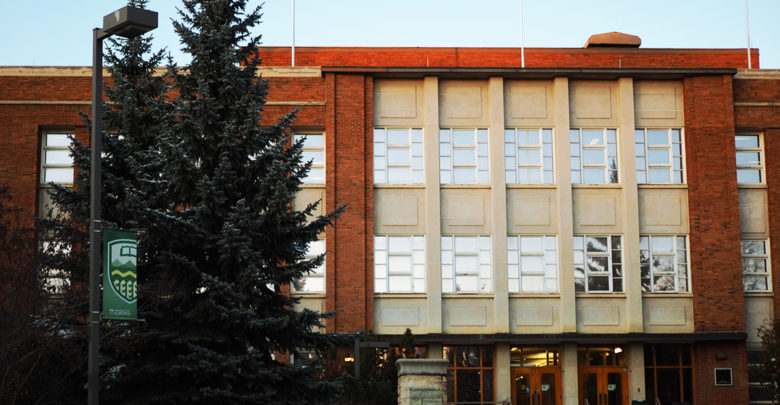 Helen Zhang
Helen ZhangOn June 17, many were undoubtedly disappointed.
The University of Alberta cancelled a number of varsity team sports for the next year, citing provincial government intimated budget cuts. While the COVID-19 pandemic had already left athletics in an uncertain position, the university’s explanation for this decision reminds us that our campus faces another crisis entirely: a funding crisis, one that will make as great an impact on our university as COVID-19.
Given the rapid and swift changes brought about by the pandemic, it’s easy to forget the substantial cuts the provincial government handed down to post-secondary education last fall. Budget 2019 cut funding to U of A by 6.9 per cent and left students vulnerable by eliminating a number of student supports. The next budget, released last February, made matters even worse by further cutting funding by 11 per cent while simultaneously announcing their intentions to implement performance-based funding for post-secondary institutions.
The effects of these policies were immediate. University administration increased the cost of tuition, rent, and meal plans on campus while additionally laying off several campus employees. Beyond monetary costs, the university is expecting to drop in international academic rankings, demonstrating the negative academic effect of these policies. All of this left U of A students with reason to be concerned about the future of their education.
Despite all of this bad news, however, students were finding ways to unite together against the harmful policies of the provincial government. Many were outspoken about the effects that these decisions had on them and participated in protests to demonstrate our collective opposition. After last year’s Students’ Union (SU) executives faced criticism over their insufficient responses to the cuts, our SU elections for 2020-21 centred around fighting against these cuts, with every candidate mentioning it multiple times throughout the campaign. Even if cynics — like myself — doubted whether this would result in change, students were actively opposing these cuts and giving each other reason to have hope.
Sadly, much of this would change once the COVID-19 pandemic hit. Understandably, the university would be forced to focus on quickly preparing a response to an unexpected global pandemic. In-person classes were suspended, grading systems were changed, and the administration is still planning what the next year will look like for the university. With the fall semester being primarily online and winter semester looking uncertain, students now have even bigger challenges to overcome, with many debating whether they’ll return to campus at all.
The university’s explanation behind cancelling team sport, however, reminds us that the funding cuts are continuing to deeply affect the university, even throughout the pandemic. While COVID-19 undoubtedly affected the decision to cancel sports, with many other universities suspending their varsity teams, the U of A’s explanation for this decision didn’t focus heavily on the pandemic. Instead, the statement given by the U of A cites the “financial reality” of the university, specifically mentioning cuts to provincial grants and an increased demand from the Alberta government to balance the university budget.
What this explanation highlights is that, unlike some other post-secondary institutions, the U of A isn’t simply facing one crisis. Instead, we are facing both a global pandemic and a funding crisis, which together threaten the future of our university in more ways than most consider.
Of course, cancelling some team sports is only one small example of this, but it demonstrates the broader cultural effects of these crises. Even for people like myself, who haven’t stepped foot in a gym since high school phys-ed class, the loss of university athletics is more than just the loss of an extracurricular activity. It’s a deeply symbolic loss, one which represents the extent to which these crises have isolated students from each other. Sports bring people together; they teach players companionship and teamwork, they provide great university experiences, and they act as a great outlet for school spirit. Sadly, we will likely lose many of these experiences over the next year.
The impacts of these crises, however, go beyond sports. The pandemic and funding cuts will have long-term consequences on the U of A, even after COVID-19 becomes a less urgent threat. Online courses will likely become more common and the variety of courses offered at the university will likely decrease as the administration continues to search for ways to reduce expenditures. Overall, our quality of education and our reputation as a world class institution will suffer. When we do return to campus, whenever that is, it’ll be a fundamentally different institution than the one we had before.
While the effects of the COVID-19 pandemic are universal, it is important to remember that our students face these effects alongside another crisis, one of the provincial government’s making. The decision to cancel team sports is disappointing in itself but it serves as an important reminder that post-secondary students are facing multiple challenges, and that they will be around long after the COVID-19 pandemic ends.




